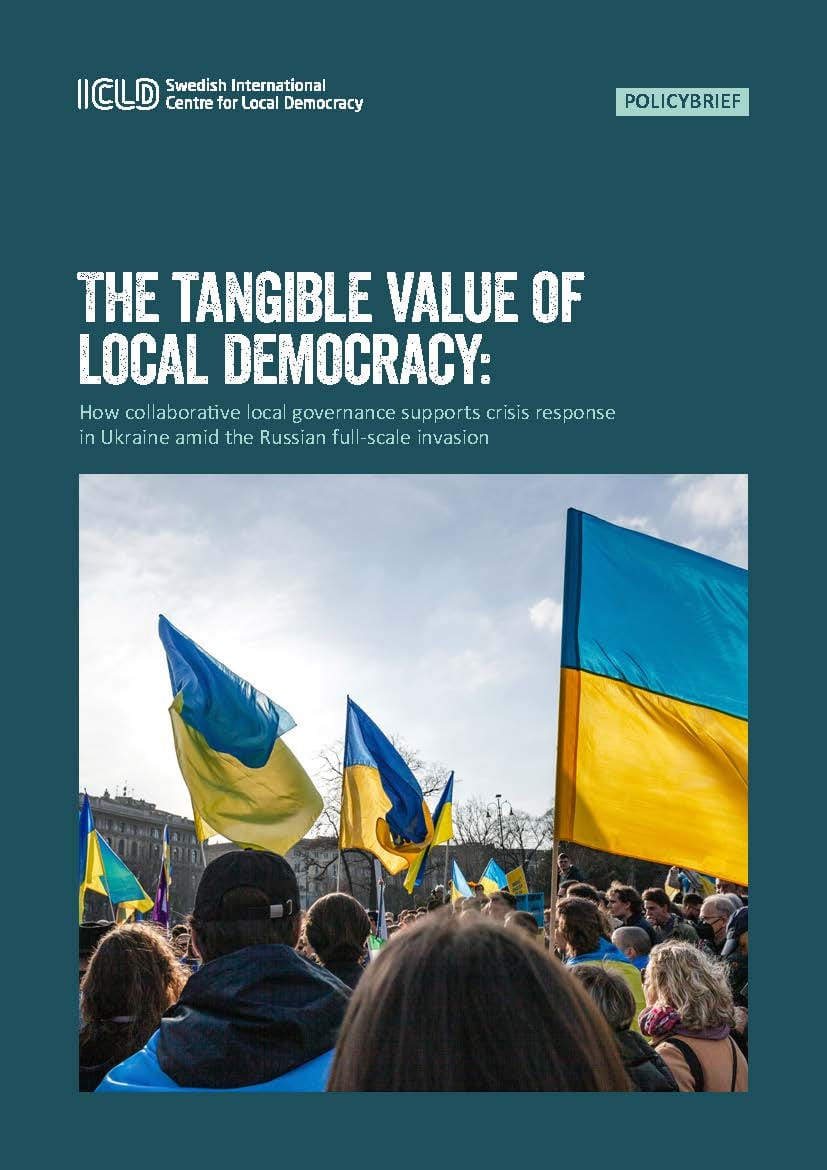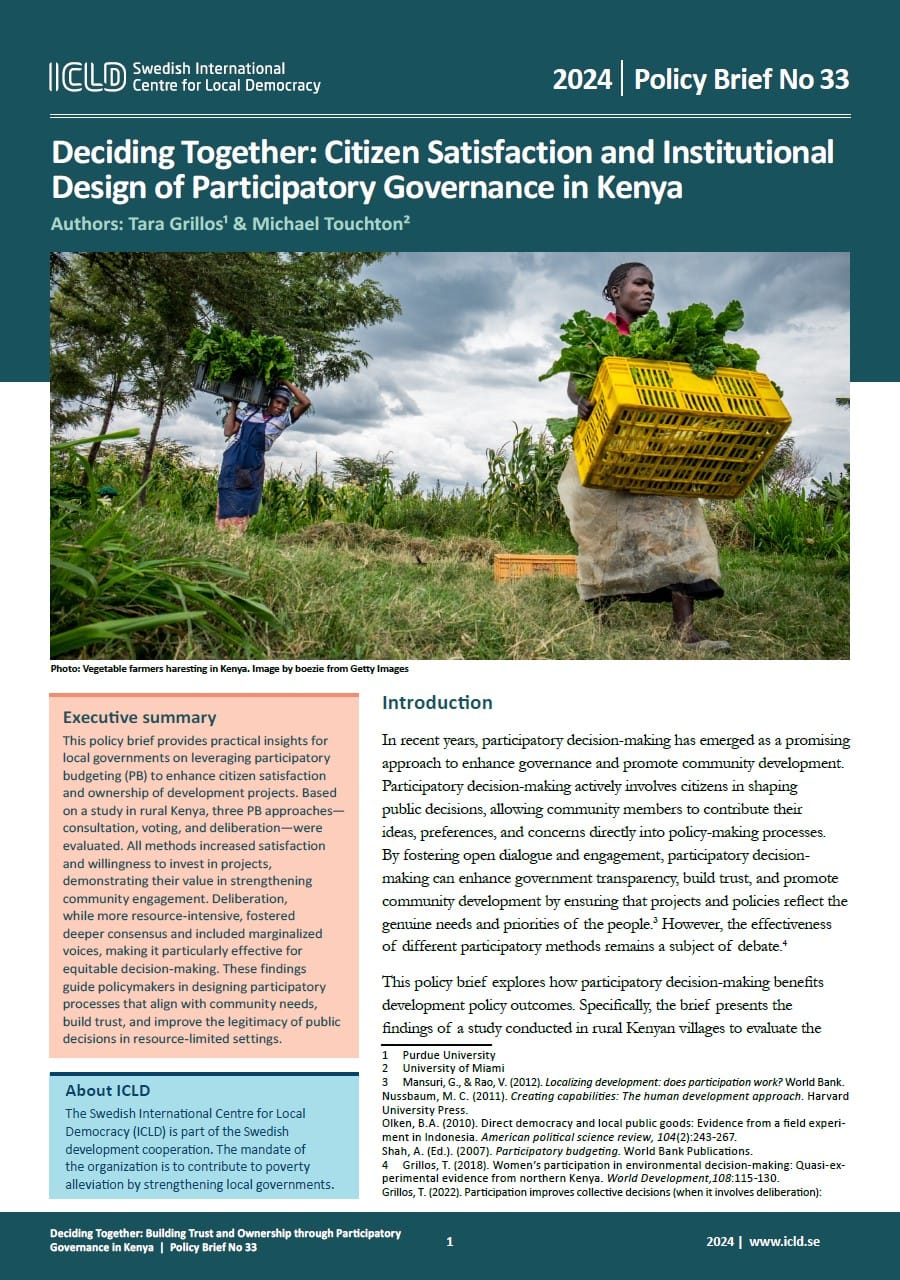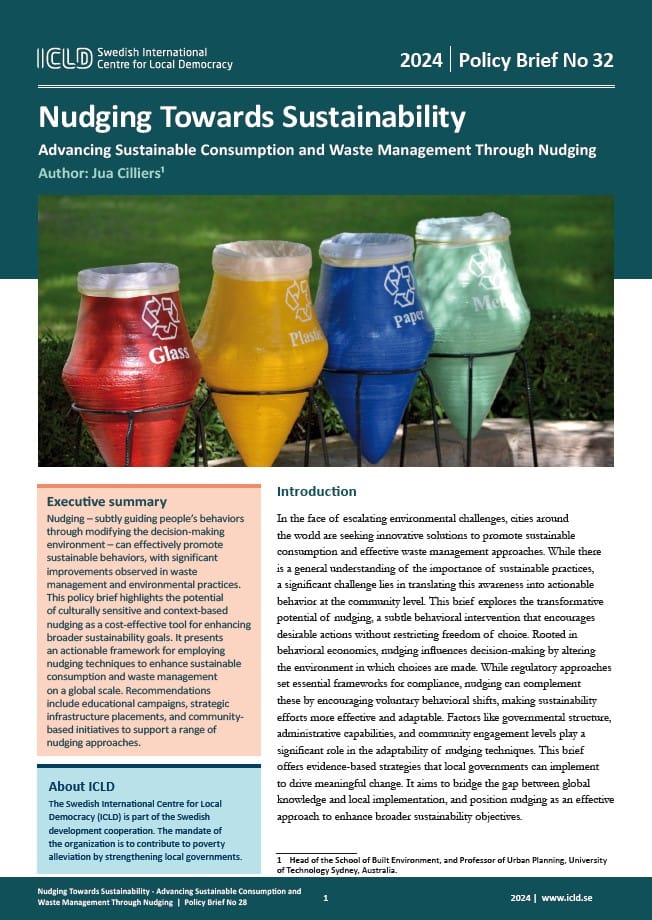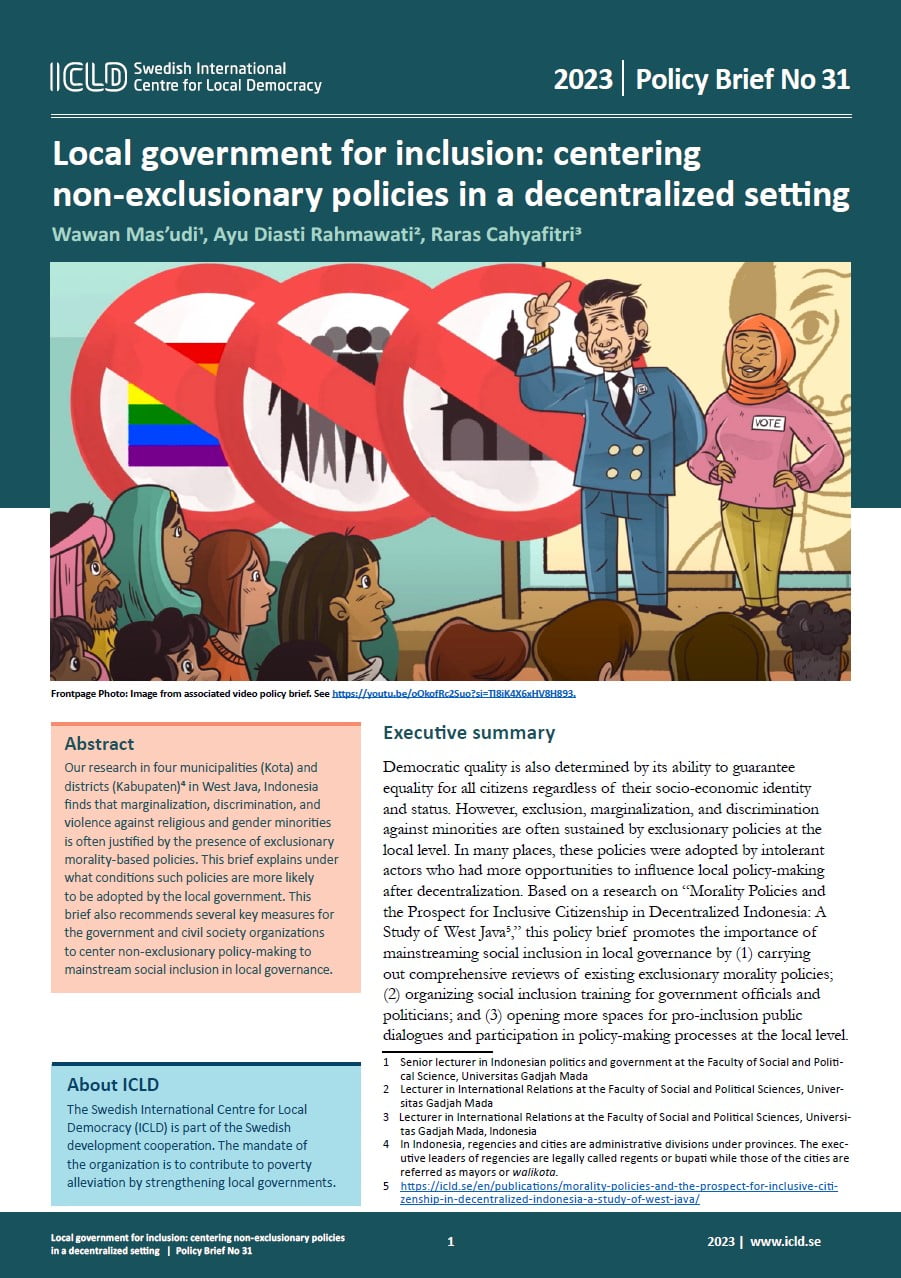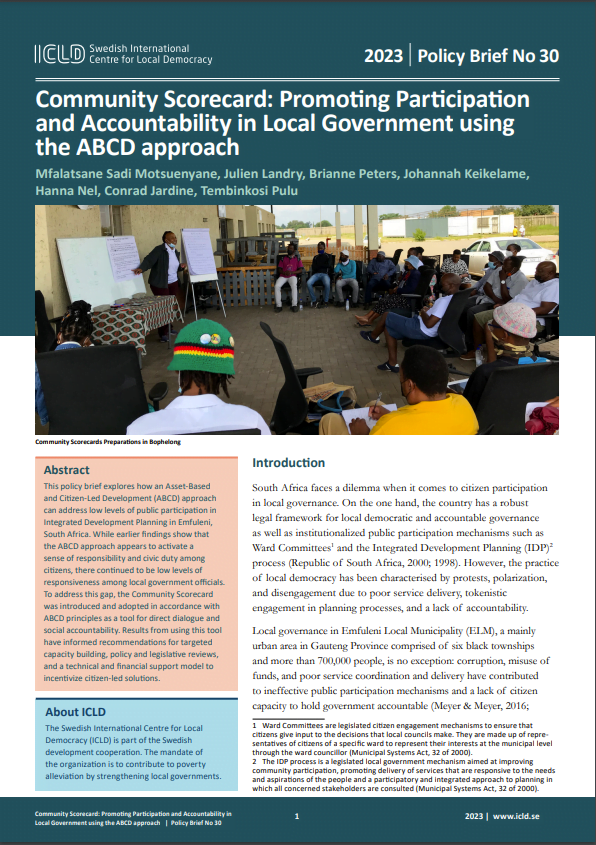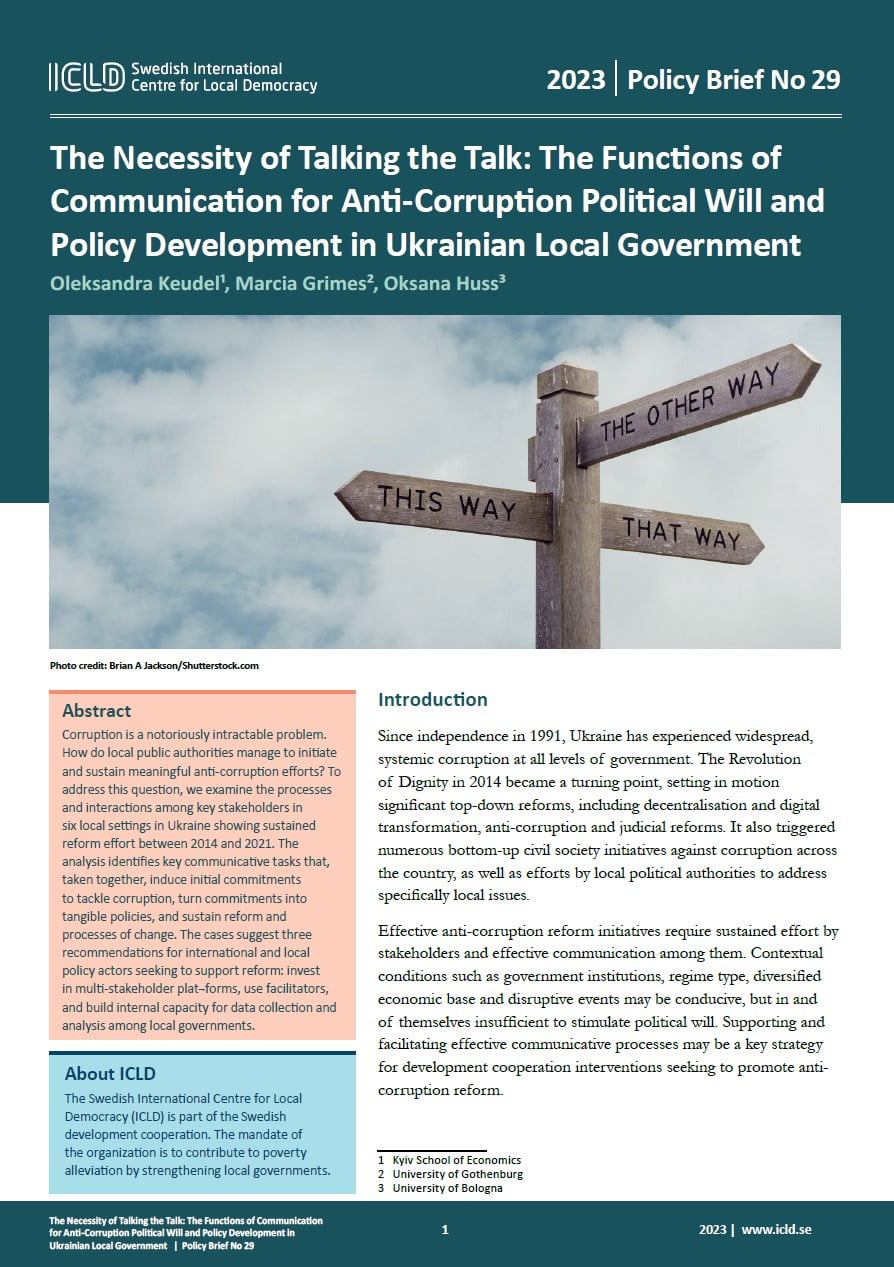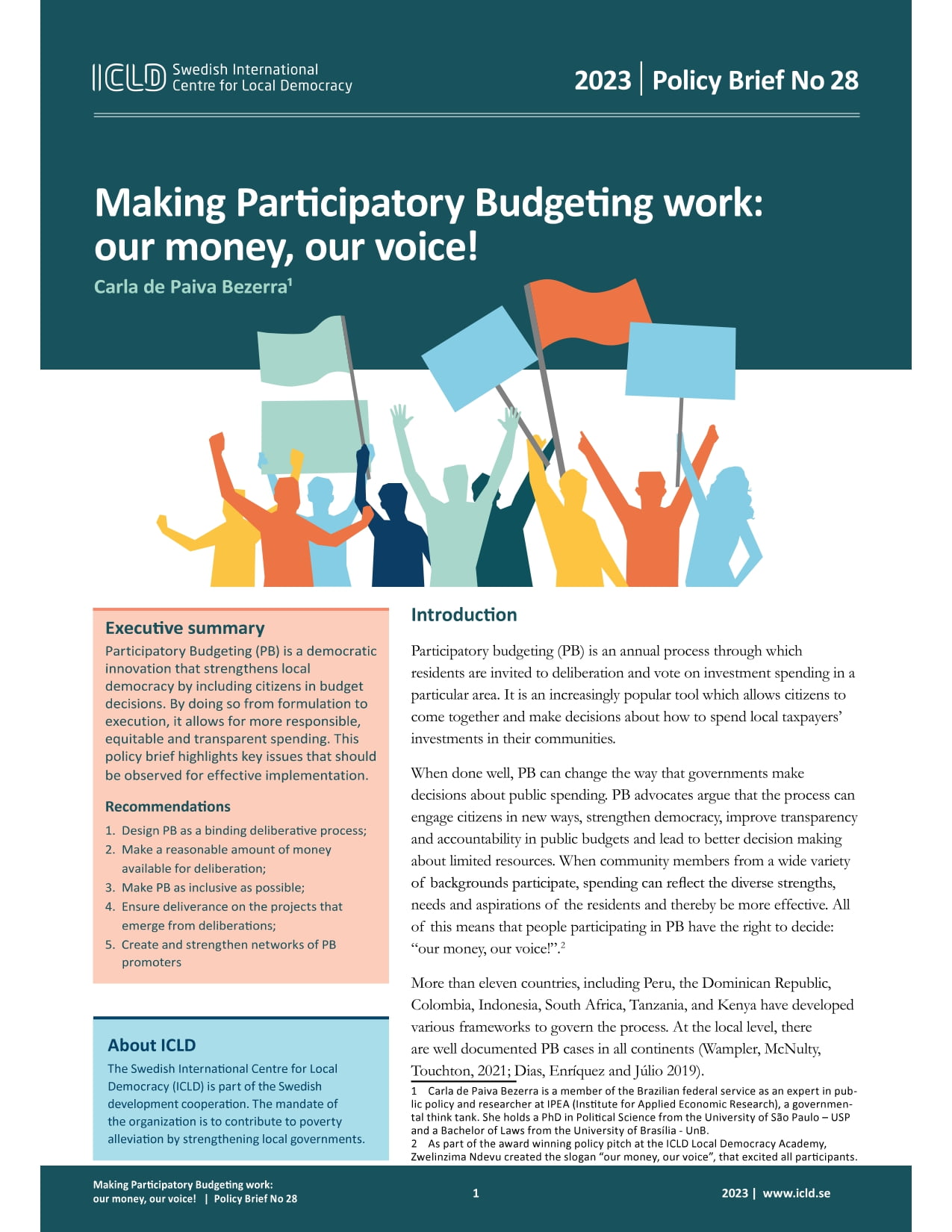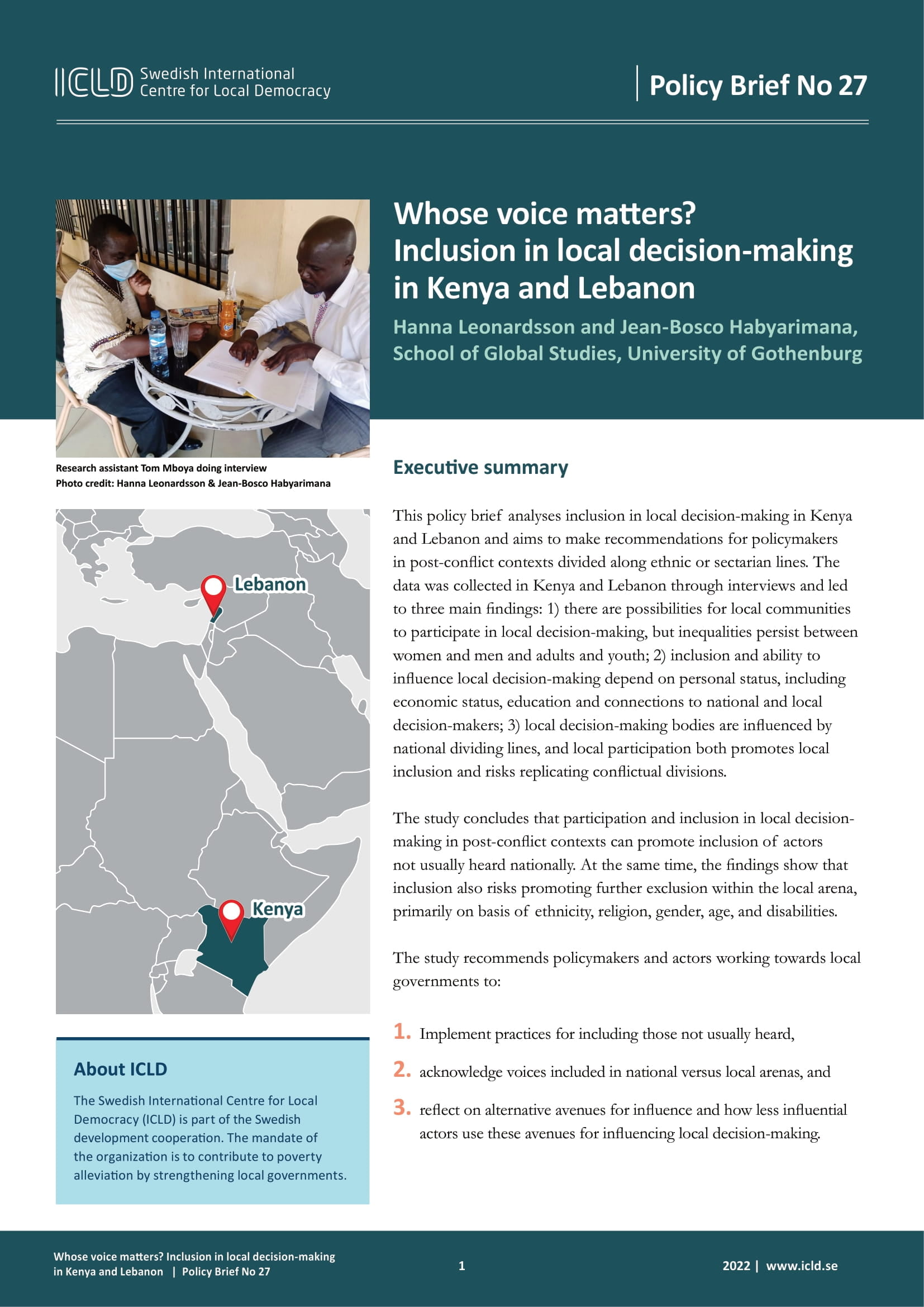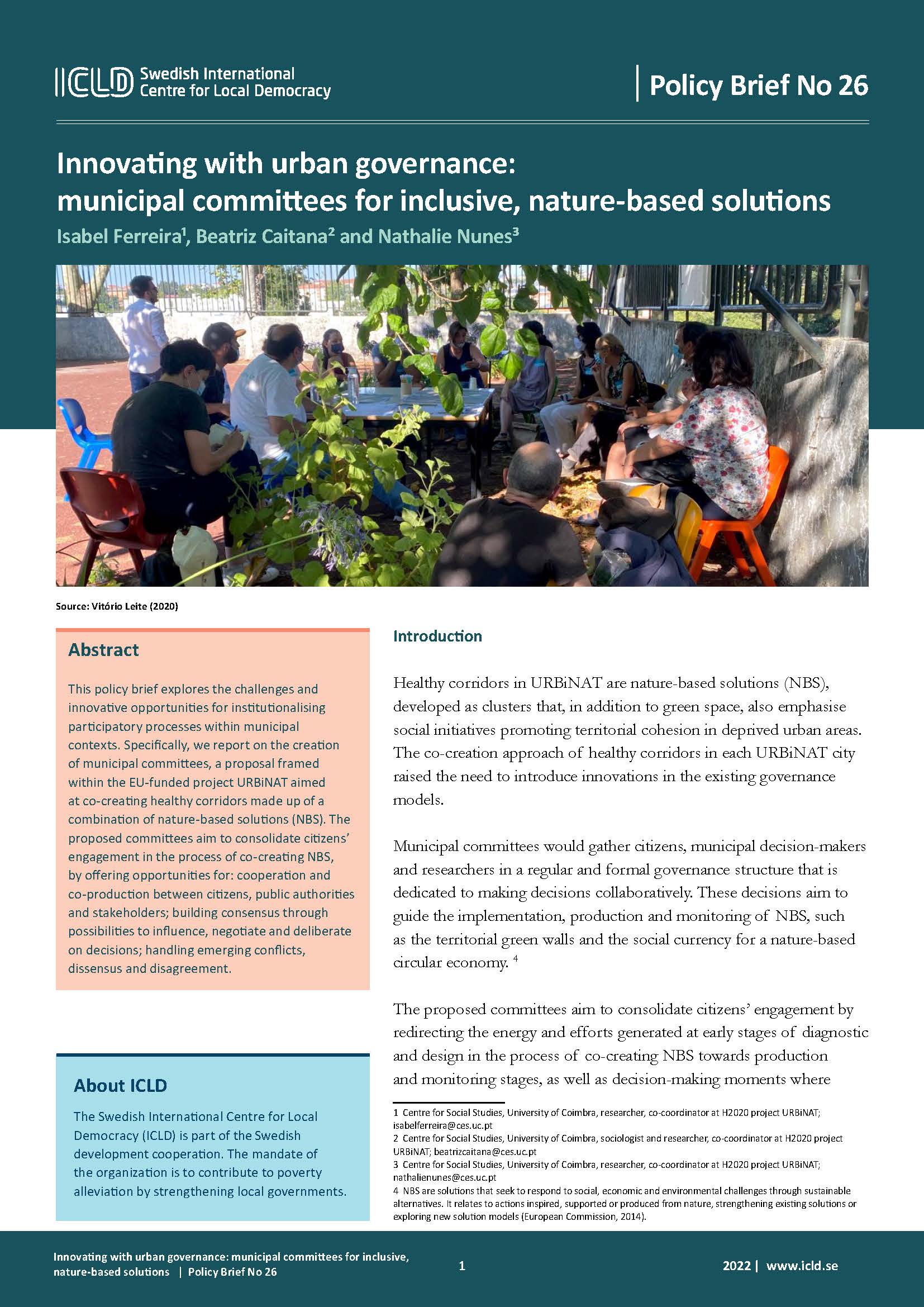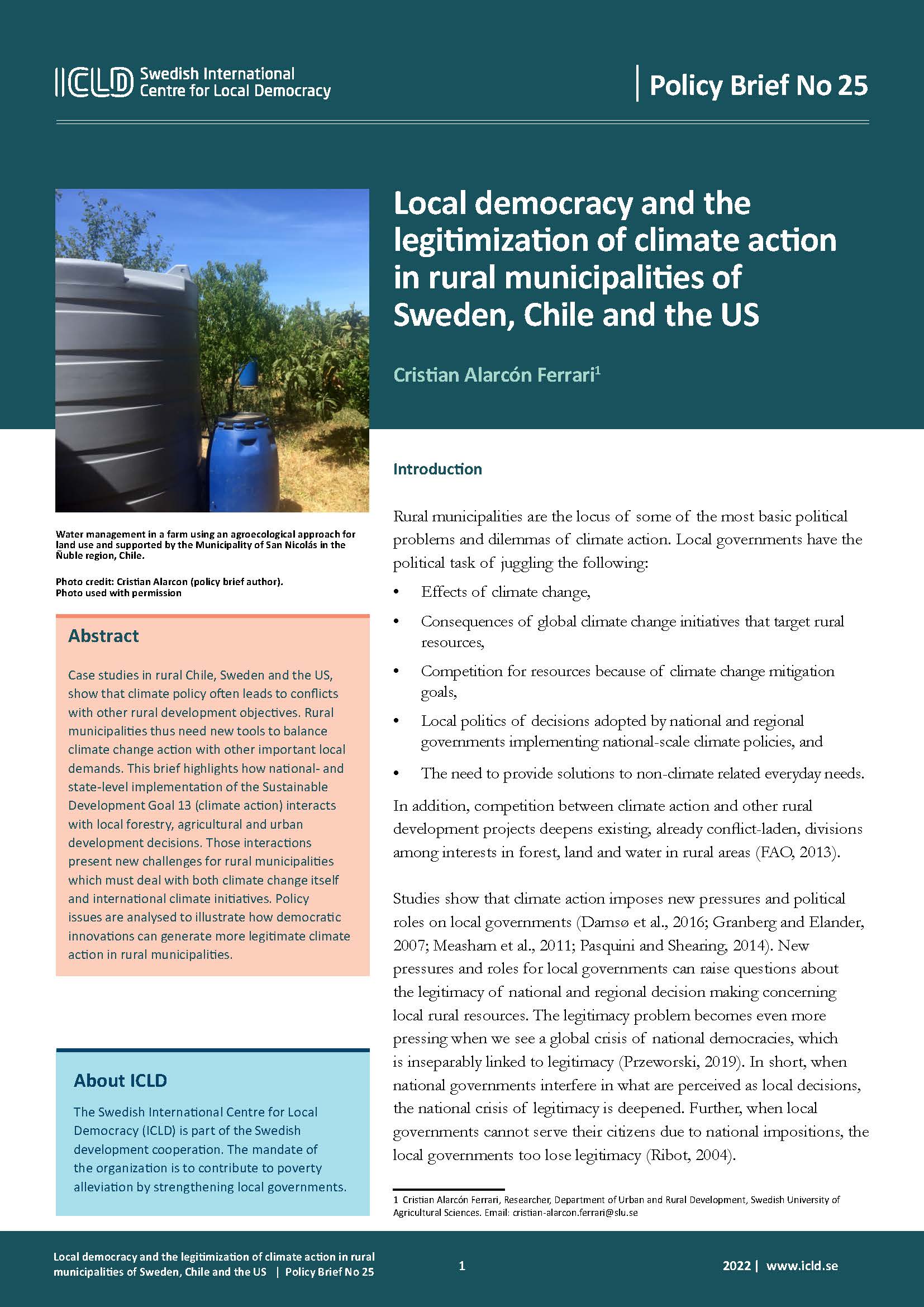Policy Briefs
-
The tangible value of local democracy
How collaborative local governance supports crisis response in Ukraine amid the Russian full-scale invasion. This brief highlights how collaborative local governance aids Ukrainian communities in responding to crises caused by Russia’s full-scale invasion and boosts societal resilience. Co-production between local governments, residents, nonprofits, and businesses has led to practical solutions for challenges like internal displacement.…
-
Deciding Together: Citizen Satisfaction and Institutional Design of Participatory Governance in Kenya
This policy brief provides practical insights for local governments on leveraging participatory budgeting (PB) to enhance citizen satisfaction and ownership of development projects. Based on a study in rural Kenya, three PB approaches—consultation, voting, and deliberation—were evaluated. All methods increased satisfaction and willingness to invest in projects, demonstrating their value in strengthening community engagement. Deliberation,…
-
Nudging Towards Sustainability: Advancing Sustainable Consumption and Waste Management Through Nudging
Nudging – subtly guiding people’s behaviors through modifying the decision-making environment – can effectively promote sustainable behaviors, with significant improvements observed in waste management and environmental practices. This policy brief highlights the potential of culturally sensitive and context-based nudging as a cost-effective tool for enhancing broader sustainability goals. It presents an actionable framework for employing…
-
Local government for inclusion: centering non-exclusionary policies in a decentralized setting
This research in four municipalities and districts in West Java, Indonesia finds that marginalization, discrimination, and violence against religious and gender minorities is often justified by the presence of exclusionary morality-based policies. This brief explains under what conditions such policies are more likely to be adopted by the local government. This brief also recommends several…
-
Community Scorecard: Promoting Participation and Accountability in Local Government using the ABCD approach
This policy brief explores how an Asset-Based and Citizen-Led Development (ABCD) approach can address low levels of public participation in Integrated Development Planning in Emfuleni, South Africa. While earlier findings show that the ABCD approach appears to activate a sense of responsibility and civic duty among citizens, there continued to be low levels of responsiveness…
-
The Necessity of Talking the Talk: The functions of Communication for Anti-Corruption Political Will and Policy Development in Ukrainian Local Government
Abstract Corruption is a notoriously intractable problem. How do local public authorities manage to initiate and sustain meaningful anti-corruption efforts? To address this question, we examine the processes and interactions among key stakeholders in six local settings in Ukraine showing sustained reform effort between 2014 and 2021. The analysis identifies key communicative tasks that, taken…
-
Making Participatory Budgeting work: our money, our voice!
Participatory Budgeting (PB) is a democratic innovation that strengthens local democracy by including citizens in budget decisions. By doing so from formulation to execution, it allows for more responsible, equitable and transparent spending. This policy brief highlights key issues that should be observed for effective implementation. This publication is a result of the Local Democracy…
-
Whose voice matters? Inclusion in local decision-making in Kenya and Lebanon
This policy brief analyses how participation and inclusivity relates to influence in local decision-making in two post-conflict contexts. Peacebuilding increasingly overlaps with development research in the turn to a local level, bottom-up approach which puts emphasis on including all groups in society in decision-making. The authors find that inclusion and participation in local decision-making can…
-
Innovating with urban governance: municipal committees for inclusive, nature-based solutions
This policy brief explores the challenges and innovative opportunities for institutionalising participatory processes within municipal contexts. Specifically, we report on the creation of municipal committees, a proposal framed within the EU-funded project URBiNAT aimed at co-creating healthy corridors made up of a combination of nature-based solutions (NBS). The proposed committees aim to consolidate citizens’ engagement…
-
Local Democracy and the Legitimization of Climate Action in Rural Municipalities of Sweden, Chile and the US
Case studies in rural Chile, Sweden and the US, show that climate policy often leads to conflicts with other rural development objectives. Rural municipalities thus need new tools to balance climate change action with other important local demands. This brief highlights how national- and state-level implementation of the Sustainable Development Goal 13 (climate action) interacts…


